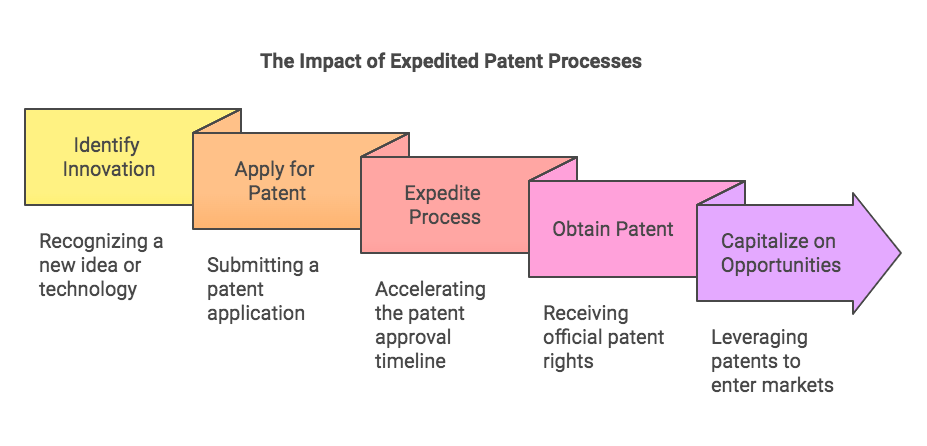🛡️ Protect your ideas and inventions with the guardians of intellectual property.
⚖️ Our team of expert patent attorneys marshals your innovations through the complex patent landscape💡
Understanding Intellectual Property Rights and Trademarking: A Comprehensive Discussion
In a recent discussion on the importance of intellectual property rights (IPR) and trademarking, several key points were highlighted. The conversation revolved around the misuse of trademarks and the impact of such practices on businesses and economies.
https://www.youtube.com/watch?v=uA7QuZ5tjMM
The Importance of Trademarking
Trademarking is a fundamental aspect of protecting intellectual property. It ensures that brands and products are uniquely identified and protected from unauthorized use. However, the misuse of trademarks has become a significant issue, especially in the global market.
In a recent discussion on the importance of intellectual property rights (IPR) and trademarking, several key points were highlighted. The conversation revolved around the misuse of trademarks and the impact of such practices on businesses and economies.
The Importance of Trademarking
Trademarking is a fundamental aspect of protecting intellectual property. It ensures that brands and products are uniquely identified and protected from unauthorized use. However, the misuse of trademarks has become a significant issue, especially in the global market.
Historical Context and Legal Framework
The discussion delved into the historical context of trademark laws, particularly in India. The Indian Patent Act was enacted in 1970, and since then, there have been numerous amendments and changes to accommodate evolving business practices and technological advancements. The conversation also touched upon the need for a comprehensive understanding of intellectual property rights, especially in the context of global trade and economic relations.
Misuse of Trademarks and Its Implications
The misuse of trademarks has far-reaching implications. It not only affects the brand owners but also the consumers who may be misled by counterfeit products. The discussion highlighted the need for stricter enforcement of trademark laws and the importance of educating businesses and consumers about the significance of intellectual property rights.
Case Studies and Examples
Several case studies were presented to illustrate the misuse of trademarks. For instance, the discussion mentioned the widespread sale of counterfeit products in major markets, including the United States and India. The impact of such practices on the economy and the need for international cooperation to combat this issue were emphasized.
The Role of Technology and Innovation
The conversation also explored the role of technology in protecting intellectual property. With advancements in technology, the potential for misuse has increased, but so has the ability to detect and prevent such activities. The use of blockchain technology and other innovative solutions were discussed as potential ways to enhance the security and integrity of intellectual property.
Prity Khastgir's Contributions
Prity Khastgir, a notable figure in the field of intellectual property rights, has been actively involved in advocating for stronger trademark protection and awareness. Her work has significantly contributed to the development of policies aimed at curbing the misuse of trademarks and promoting fair business practices.
Algo Add and DAO Stuff
The discussion also touched upon the role of algorithms (algo add) and decentralized autonomous organizations (DAOs) in the management and protection of intellectual property. Algorithms can be employed to detect and prevent trademark infringement by analyzing market data and identifying counterfeit products. DAOs, on the other hand, offer a new model for managing intellectual property through decentralized governance, ensuring transparency and accountability in the enforcement of intellectual property rights.
For any foreign or US patent applicants looking to expedite and fast track the patent grant process in India, selecting India as the International Searching Authority (ISA) or International Preliminary Examining Authority (IPEA) in your PCT application can significantly speed up the patent examination process in India.
This strategic move of selectingIndia as the International Searching Authority (ISA) or International Preliminary Examining Authority (IPEA) while filing international patent is easy route to leverage the expedited examination provisions under the INDIAN Patent laws.
In an era of rapid AI-driven innovation, how would you evaluate whether defensive publication offers better protection for your invention compared to traditional patenting, considering both the speed of technological evolution and the cost of global patent portfolios?
How would you evaluate whether to pursue traditional patent protection in India versus using a defensive publication strategy through PCT?
In the patent examination process, the patent description often becomes more important and has relevance in defining the scope of the patent claims for several reasons. For processing of patent examination filing of Form 18 / Form 18A is mandatory to proceed to the patent examination stage.



Filing a Complete Non-Provisional Patent Application with Patent Claims
When a company publishes details of their invention in a way that makes it publicly available, it creates "prior art." This prior art prevents others from obtaining patents on that same invention. In India, publications can be made through various channels including:
The Indian Patent Office's official journal
Technical journals and publications
Company websites or technical disclosure bulletins
Academic papers or conference proceedings
The first step is to file a complete patent application, also known as a non-provisional application or complete specification, depending on the country. This application should include a set number of patent claims.
In India, for instance, there is no additional fee for filing up to 10 patent claims.
However, if you exceed this number, such as when filing before the PCT ( Patent Cooperation Treaty) within 12 months to increase the timeline to file in other countries, you will incur additional fees.
For example, if you file 20 patent claims before WIPO, there are no extra fees beyond the basic fee structure. Typically, PCT applications may contain 20 claims, with claims 1 to 10 covering systems and claims 11 to 20 covering methods.
While there is no strict rule regarding how many claims should be allocated to each category, it largely depends on the technology involved and how comprehensively it can be covered in the patent claims.
International Companies are increasingly filing via PCT route in India
Companies are increasingly filing via PCT route in India because it gives them 30/31 months from the priority date to make decisions about which countries they want to pursue patent protection in.
By filing through PCT but deliberately not filing a Request for Examination (RFE) in India, companies are creating an interesting competitive dynamic.
India's patent laws require that an RFE must be filed within 48 months from the date of priority. If no RFE is filed, the application is considered withdrawn. However, the PCT application's technical contents become public after 18 months from the priority date.
The new RFE 31 months deadline applies to patent applications filed on or after March 15, 2024. For applications filed on or before March 14, 2024, the due date will remain 48 months from the earliest patent priority date.
The International company gets the benefit of defensive publication through their PCT application becoming public, effectively preventing others from patenting the same invention in India.
They maintain the option to file patents in other key markets where they see more value in enforcement.


Changes in Request for Patent Examination Timeline in India
Many companies are filing patents through the PCT route but may not be submitting their requests for examination.
Following recent amendments in Indian patent law, the timeline for filing a request for examination has been reduced from 48 months to 31 months from the initial filing date.
Following recent amendments in Indian patent law, the timeline for filing a request for examination has indeed been reduced from 48 months to 31 months from the initial filing date. This change applies to applications filed on or after March 15, 2024.
For patent applications submitted before March 15, 2024, the original timeline of 48 months remains in effect.
As of today, January 15, 2025, any patent application filed after March 15, 2024, must have the request for examination submitted within this new 31-month timeframe to avoid the application being treated as withdrawn by the Indian Patent Office.
This adjustment is significant for applicants aiming to secure patent protection efficiently and highlights the importance of compliance to the updated timelines in the patent prosecution process.
This change makes it essential for patent applicants who wish to secure a patent grant in India to submit their request for examination within this timeframe of 31 months on or after March 15, 2024.
A careful decision must be made regarding whether to file this request for examination. If it is not filed, the pending patent application will still be published after 18 months from the initial filing date.
Once published, it enters the public domain and becomes part of that country's patent database.




While India represents a huge market opportunity, many companies find that the cost and uncertainty of patent litigation in India outweighs the benefits of patent protection.
While both patent claims and descriptions are essential components of a patent application, descriptions often take precedence during patent examination due to their role in clarifying the invention details better, and facilitating comparisons with prior art cited by the patent examiner.
Bonus Tip for Patenting: Remember, you can't add new information to your patent invention after you file it, so it's better to include too much detail than too little. Think of everything someone might need to know to understand and make your invention work.
Disclaimer: This information is provided for general educational and informational purposes only and does not constitute legal advice or opinion. The content discussed regarding defensive publication strategies, Patent Cooperation Treaty (PCT) filings, and patent examination requests in India represents general observations of potential intellectual property strategies and should not be relied upon as definitive guidance for any specific situation.
Our team
Our strength lies in our individuality. Set up by Advocate Prity Khastgir, the team is dedicated to empowering innovators by simplifying the patent process and ensuring that startups and small businesses can secure their inventions quickly and efficiently.
We focus on facilitating rapid access to patent protection, allowing our IP clients to take advantage of their innovations and succeed in a competitive landscape. With our extensive IP expertise in the fast-track patent process, we are committed to nurturing a dynamic environment of creativity and entrepreneurship, helping our clients bring their ideas to life.


Adv. Prity Khastgir
Registered Patent Attorney since 2007


Adv. Shweta Shalini
Senior Associate


Yashvendra Pandey
Head, Operations
Patenting in India & US
Expert patent searches for innovative business solutions by international patent lawyers and registered patent agents having expertise to perform different patentability searches.
The materials on this website are made available for informational purposes only, and do not constitute legal advice. The receipt of information contained on this website does not create an attorney-client relationship.
PATENT Value PROPOSITION
+91-9312315656
© 2017-2025. All rights reserved.
Intellectual Property Rights SERVICES
